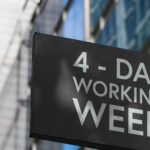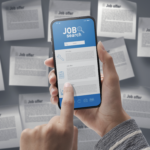As the weather turns colder and the seasons change it’s time to take a look at the small but important steps you can take to protect your business. Employment law consultant Liam Grime and health and safety specialist Heather Dunning from the ELAS Group take a look at the main risks and offer their top tips for winter proofing your business.
Top 5 health and safety risks
Slips, trips and falls
Slips, trips and falls can become more of a hazard in the autumn and winter seasons. This is because there is less daylight, leaves fall on the ground making it wet and slippery, and the cold weather causes ice and snow.
Many slip accidents happen at building entrances as people entering the building walk in rainwater. By using absorbing mats or fitting canopies at the entrance to buildings, you can help prevent accidents from happening. Encourage employees and visitors to the premises to avoid walking across wet grass as a short cut as this is likely to be slippery when wet. Outdoor areas which are used by pedestrians should be identified as the areas likely to be affected by ice, particularly building entrances, car parks, pedestrian walkways and sloped areas around the building.
Vehicle maintenance
If you have a fleet of vehicles, it’s important to make sure that they are properly maintained ahead of the change in weather. Ensure that they have been serviced, the battery is checked, top up engine coolant, oil and water, check tyre condition, ensure lights are working and wash your windscreen and wipers. Daily visual checks should be carried out to maintain safety and records should be kept. Any problems that are identified should be fixed immediately.
Employees who drive for work should ensure that they wear suitable clothing for the weather conditions. Ensure that the windscreen, windows and mirrors are cleared of snow and ice before setting off and all internal windows must be demisted as you must have clear, all round vision before departing.
PPE
Safety footwear is essential, especially when working outdoors. Footwear should be slip resistant, heavy duty and insulated to protect employees. Wearing several layers of clothing rather than one thick later will keep employees warmer as the air captured between the layers acts as an insulator. Hats and hoods prevent heat loss from the head and protect ears. Gloves should be worn to protect hands as well as keep them warm.
Working conditions
Employers have a legal obligation to provide a reasonable temperature in the workplace and office environments should normally be at least 16°C. Employers can provide portable heaters to prevent employees from being cold (these would need to be PAT tested) and draughts should be reduced. Sufficient breaks must be provided to enable employees to have hot drinks. Employees who work outdoors must be provided with adequate protective clothing to ensure that they are warm and safe (see above). Work should be scheduled according to the weather conditions in order to protect employees.
Christmas tree safety
Christmas is a time for celebration and should not end in tragedy because of extra hazards that are present at this time of year. It’s easy for businesses to get into the festive spirit safely by following these simple steps:
Fairy lights: Check that the fuses are the right type; Don’t let the bulbs touch anything that can burn easily e.g. paper; Ensure all lights are unplugged at the end of each working day/ Decorations: Don’t attach them to lights or heaters; Keep all decorations away from candles; Ensure Christmas trees are secured to prevent them from falling
Top 5 employment law risks:
Increased absenteeism
As the temperatures fall the absence rate rises. Every year we see a pattern of increased absence over the colder months; in 2016 all the top ten dates with the highest absence rates fell in the latter quarter of the year. In a workplace environment colds and flu can spread quickly, impacting both the health of your employees as well as productivity. Employers should consider offering flu vaccines and encourage good hand hygiene in order to prevent illness. Smart software such as Attendance Pro can help identify patterns of absence and enable employers to put measures in place to combat this.
We also see an increase in absence due to inclement weather. Severe weather conditions can cause havoc on the roads and disrupt public transportation but if it is safe to travel, employees should come in as usual. If employees are unable to get to work, the impact on a business can be costly. Employers can help to lessen that by having a force majeure clause in their contracts to ensure that they are not liable to pay their employees if an ‘act of god’ prevents them from getting to work. You should have an adverse weather policy in place so employees know what is expected of them. This should cover how employees deal with travel disruptions, whether any alternative work arrangements can be considered, how any absence from work would be treated and how employees would be paid for these. It is prudent to include provisions for employees who will also see disruption from school closures or childcare issues. If you believe that an employee is using the weather conditions as an excuse for absence and taking a snowball day e.g. if they live around the corner from the office, then this could be a disciplinary matter.
Loss of productivity
November and December are traditionally the busiest times of the year for many businesses so it’s important to maintain productivity. Just because an employee is unable to get to work, it doesn’t have to mean that they can’t be productive. Consider flexible working options or a work from home policy and provide them with the means to do so. This will help you maintain your operation and reduce disruption – obviously if employees are absent due to genuine illness this is not relevant.
As Christmas approaches, you may find employees are thinking more about breaking up for the holidays than they are about work. They may be spending time shopping online whilst at work or be otherwise distracted. Whilst nobody wants to come across as a bit of a Scrooge, employees should be reminded that business is still in operation in the lead up to the Christmas break and they are still expected to put in as much effort as during the rest of the year. Seasonal incentives such as Christmas lunch, Secret Santa or target based office games to win some last minute stocking fillers can help keep motivation high and ensure your employees get the most out of their time at work.
Christmas party bad behaviour
The last thing any employer wants is for the behaviour of their employees at the work Christmas party to have a negative impact on their business or its reputation. Employees should be reminded that while they should be free to enjoy themselves, they are representing not only themselves but also the company and are expected to behave as they would in a professional environment. Drunken, loutish behaviour can not only impact on their professional reputation, it can also have a serious impact on the way that people view the business.
Giving consideration to the phrase ‘a drunken mouth speaks an honest mind’, employers may find that employees are less concerned about giving their manager or other colleagues a piece of their mind after a few drinks, leading to arguments or fighting. When the alcohol is flowing it’s easy for banter to cross the line into offensive behaviour or sexual harassment. Remind employees that the Christmas party is not a place to air grievances and any violent, offensive or abusive conduct could result in disciplinary action. If there are issues that employees would like to be addressed, this should be done professionally through the company’s grievance procedure.
Drugs and alcohol
At this time of year we see an increase in social events, with many looking forward to socialising with colleagues or clients. While it’s easy to end up drinking more than you intended sometimes the morning after can cause more problems than the night before. Employees should be reminded of the company’s drugs and alcohol policy. Few people consider how long it takes alcohol to leave their system and there is a good chance that you may be over the legal limit when driving to work in the morning. Some companies might encourage boozy lunch meetings, others may have employees who operate heavy machinery and therefore apply a zero tolerance policy – which would include testing positive the morning after the night before. There are very severe consequences for employers who fail to prevent accidents caused by the actions of an employee – if these actions follow an official work function it is even worse.
Companies need to remember that while testing can be used to identify those who come to work whilst impaired it’s just as important to take a proactive approach to the issue, educating workers and minimising the chance of them taking the risk of coming to work whilst under the influence of drugs or alcohol.
Consideration for other religions and beliefs
The festive period encompasses many different religious celebrations and it’s important that employers recognise this. Employee should be well trained in anti-discrimination practices and all religious observance and equal opportunities policies should be up to date and adhered to. It’s important to take an inclusive approach and ensure that all employees feel valued regardless of their religious beliefs or lack thereof.
www.elas.uk.com









